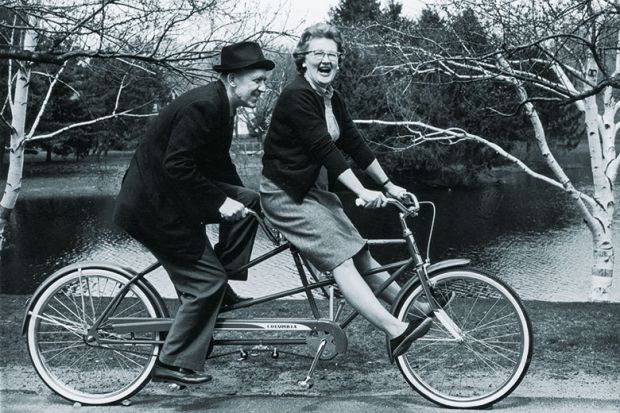The number of academics working past the age of 65 in UK universities has more than doubled since the compulsory retirement age was abolished, new figures show.
Some 7,090 scholars aged 66 or over are now working in UK higher education, representing 3.4 per cent of the 206,870-strong academic workforce, according to data published by sector agency Advance HE.
That is more than twice the 3,390 scholars aged 66 or over who were employed in August 2011, shortly before the UK’s mandatory retirement age was abolished in November that year. Then, over-65s made up just 1.9 per cent of the workforce.
The trend for more academics to work into their late sixties is likely to continue following the Universities Superannuation Scheme’s closure of final salary pensions in 2016, and with further cuts to retirement benefits also likely.
The so-called “greying” of academia has raised concerns among some universities that younger scholars will struggle to gain employment or promotion as older staff work on.
Three UK institutions – the universities of Oxford, Cambridge and St Andrews – have introduced rules known as an ‘employer justified retirement age’ (EJRA), although Oxford is currently fighting numerous age discrimination claims by staff required to retire at the age of 68.
However, there is mixed evidence over whether older staff are taking the jobs of younger faculty. Some 27,570 academic staff aged 30 or under were employed in UK higher education at the end of August 2017 compared with 25,000 six years earlier.
But the proportion of academics aged 30 or under in the workforce fell from 13.9 per cent to 13.3 per cent, given that overall staff numbers rose by about 25,000 during this six-year period.
The latest data suggest that more academics aged 66 or over, albeit still a small minority, are working full-time. Some 1,475 academics aged 66 or over were working full-time last year compared with just 400 in 2011.
David Palfreyman, director of the Oxford Centre for Higher Education Policy Studies, argued that the latest figures indicated why Oxford’s rule on age-related retirement was misguided.
“The quantity of ‘oldies’ hanging around in UK academe, allegedly hindering diversity, is tiny, albeit marginally increasing,” said Mr Palfreyman, who added that the “value of retaining, often on a flexible part-time basis, the valuable experience and expertise of the 65-plus academic surely should be welcomed”.
Mr Palfreyman, who is 64, added that most Western societies had long ago scrapped “age discrimination laws” and that “other top-10 global universities, mainly in the US, do not have an EJRA and hence are not facing, as is Oxford, two challenges at the level of the employment tribunal”.
Register to continue
Why register?
- Registration is free and only takes a moment
- Once registered, you can read 3 articles a month
- Sign up for our newsletter
Subscribe
Or subscribe for unlimited access to:
- Unlimited access to news, views, insights & reviews
- Digital editions
- Digital access to THE’s university and college rankings analysis
Already registered or a current subscriber? Login








